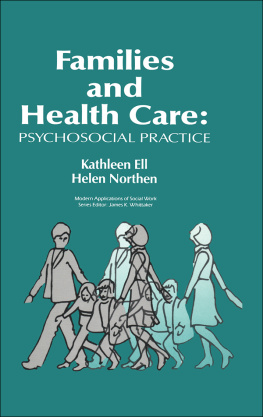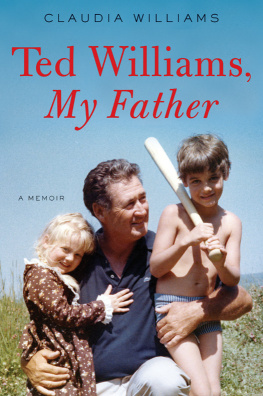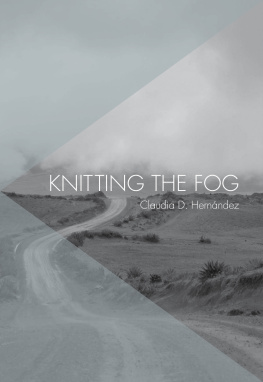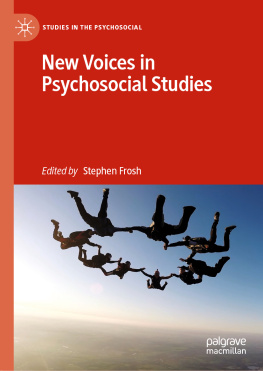Psychosocial and Relationship-based Practice
Other books you may be interested in:
Anti-racism in Social Work Practice
Edited by Angie Bartoli
ISBN 978-1-909330-13-9
Evidencing CPD A Guide to Building Your Social Work Portfolio
By Daisy Bogg and Maggie Challis
ISBN 978-1-909330-25-2
Modern Mental Health: Critical Perspectives on Psychiatric Practice
Edited by Steven Walker
ISBN 978-1-909330-53-5
Personal Safety for Social Workers and Health Professionals
By Brian Atkins
ISBN 978-1-909330-33-7
Positive Social Work: The Essential Toolkit for NQSWs
By Julie Adams and Angie Sheard
ISBN 978-1-909330-05-4
Practice Education in Social Work: Achieving Professional Standards
By Pam Field, Cathie Jasper & Lesley Littler
ISBN 978-1-909330-17-7
Social Media and Social Work Education
Edited by Joanne Westwood
ISBN 978-1-909682-57-3
Starting Social Work: Reflections of a Newly Qualified Social Worker
By Rebecca Joy Novell
ISBN 978-1-909682-09-2
The Critical Years: Child Development from Conception to Five
By Tim Gully
ISBN 978-1-909330-73-3
Understanding Substance Use: Policy and Practice
By Elaine Arnull
ISBN 978-1-909330-93-1
Whats Your Problem? Making Sense of Social Policy and the Policy Process
By Stuart Connor
ISBN 978-1-909330-49-8
Titles are also available in a range of electronic formats. To order please go to our website
Psychosocial and Relationship-based Practice
First published in 2015 by Critical Publishing Ltd.
All rights reserved. No part of this publication may be reproduced, stored in a retrieval system, or transmitted in any form or by any means, electronic, mechanical, photocopying, recording or otherwise, without prior permission in writing from the publisher.
Copyright Claudia Megele
British Library Cataloguing in Publication Data
A CIP record for this book is available from the British Library
ISBN: 978-1-909682-97-9
This book is also available in the following e-book formats:
MOBI ISBN: 978-1-909682-98-6
EPUB ISBN: 978-1-909682-99-3
Adobe e-book ISBN: 978-1-910391-00-6
The rights of Claudia Megele to be identified as the Author of this work have been asserted by her in accordance with the Copyright, Design and Patents Act 1988.
Cover design by Greensplash Limited
Project Management by Out of House Publishing
Typeset by Newgen Knowledge Works
Printed and bound in Great Britain by Bell & Bain, Glasgow
Critical Publishing
152 Chester Road
Northwich
CW8 4AL
www.criticalpublishing.com
Meet the author
| Claudia Megele is a Senior Lecturer and PQ/CPD Programme Leader and Digital Lead at Middlesex University, and she is also the Head of Practice Learning at Enfield Council. Claudias psychosocial and interdisciplinary approach is shaped by her studies which include psychology, sociology, social work and psychotherapy, and her professional experience which ranges from play therapy with terminally ill children at Red Cross Childrens Hospital to psychotherapy with adults at the NHS, and from front-line social work with children and families to research on identity, mentalisation, empathy and relationships. Claudia has also served in a number of public and third-sector posts and organisations including: Member of the advisory board of the National Childrens Bureau (NCB), Trustee at Mind, and the Chair and Vice-Chair of Tower Hamlets Police and Community Safety Board. |
Foreword
If you really render social work to its basics then there isnt much left other than the relationship between worker and client, practitioner and service user. Of course, social workers have statutory duties and powers, can access and organise resources, and do employ a variety of theoretically based techniques and interventions. But each of these only takes place in the medium of the workerclient relationship. The quality and character of the relationship therefore matters; it matters a great deal.
I began my career in social work more years ago than I care to remember. Two of the key texts that I valued reading during my first days as a childcare officer (were talking pre-Seebohm, pre-1971 here) were Margaret Ferard and Noel Hunnybuns (1962) The Caseworkers Use of Relationships (with a foreword by John Bowlby, no less) and Isca Saltzberger-Wittenbergs (1970) Psycho-analytic Insight and Relationships: A Kleinian Approach. Since those days, the importance of the relationship in social work has had something of a roller-coaster career. At the moment, relationship-based practice is enjoying a slight renaissance. In part, this is a reaction to the many years of political and bureaucratic enthusiasm for measuring, checking and assessing everything that could be measured, checked and assessed. A measure is a dangerous tool, said the economist Robert Skidelesky, for it tends to take the place of whatever it purports to measure. And because the humanity of relationships is not easily captured by these measuring instruments, the fundamental importance of the relationship lost its status under performance-minded regimes. Its value was diminished. Losing sight of the relationship was always bound to end with social work losing its heart and with it, irony of ironies, losing its efficacy and social credibility.
The relationship between one human being and another has long fascinated social scientists, philosophers and the helping professions. It is, after all, where so much of our life takes place, as people, parents, partners, professionals and service users. But it is a complicated, often tricky place, subject to the turbulence of our own and other peoples thoughts, feelings and behaviour. And it gets more complicated and even trickier when feelings are running high. Anxiety, anger, fear, shame, sadness they can all confuse and confound the normal give-and-take of social behaviour. And stress, of course, is one of the main culprits when it comes to upsetting and derailing relationships. Under stress, our anxieties rise, our reflective capacities are thrown. Past experiences distort the way we see and feel about present events. Reason is lost and our defences distort, disfigure and disturb. The world of stress and anxiety, fear and anger, worry and loss, hope and despair, heartache and joy is the world in which social workers find themselves on a daily basis. Therefore, if they dont give thought to matters of feeling their own, as well as those of their clients and colleagues then their practice will, at best, be in danger of being at sea and at worst, be insensitive and brutal.
Claudia Megele has written a book in which the emotional labour of being a social worker is beautifully and fully explored. She brings conviction as well as scholarship to the task of describing and defining a relationship-based practice. We are introduced to many of the great figures who have devoted their lives to thinking about human relationships and what is involved when we seek to help a fellow human being. Freud, Adler, Bion, Klein, Bowlby, Ainsworth, Fairbairn, Winnicott, Fonagy and Berne are all discussed. Their ideas for relationship-based theories, practices and understandings are explained and evocatively applied to a number of rich, detailed, unflinching case examples. The cases are the heart of the book. They capture the everyday reality of social work, making the idea of a well-thought-through psychosocial, relationship-based practice all the more compelling.














